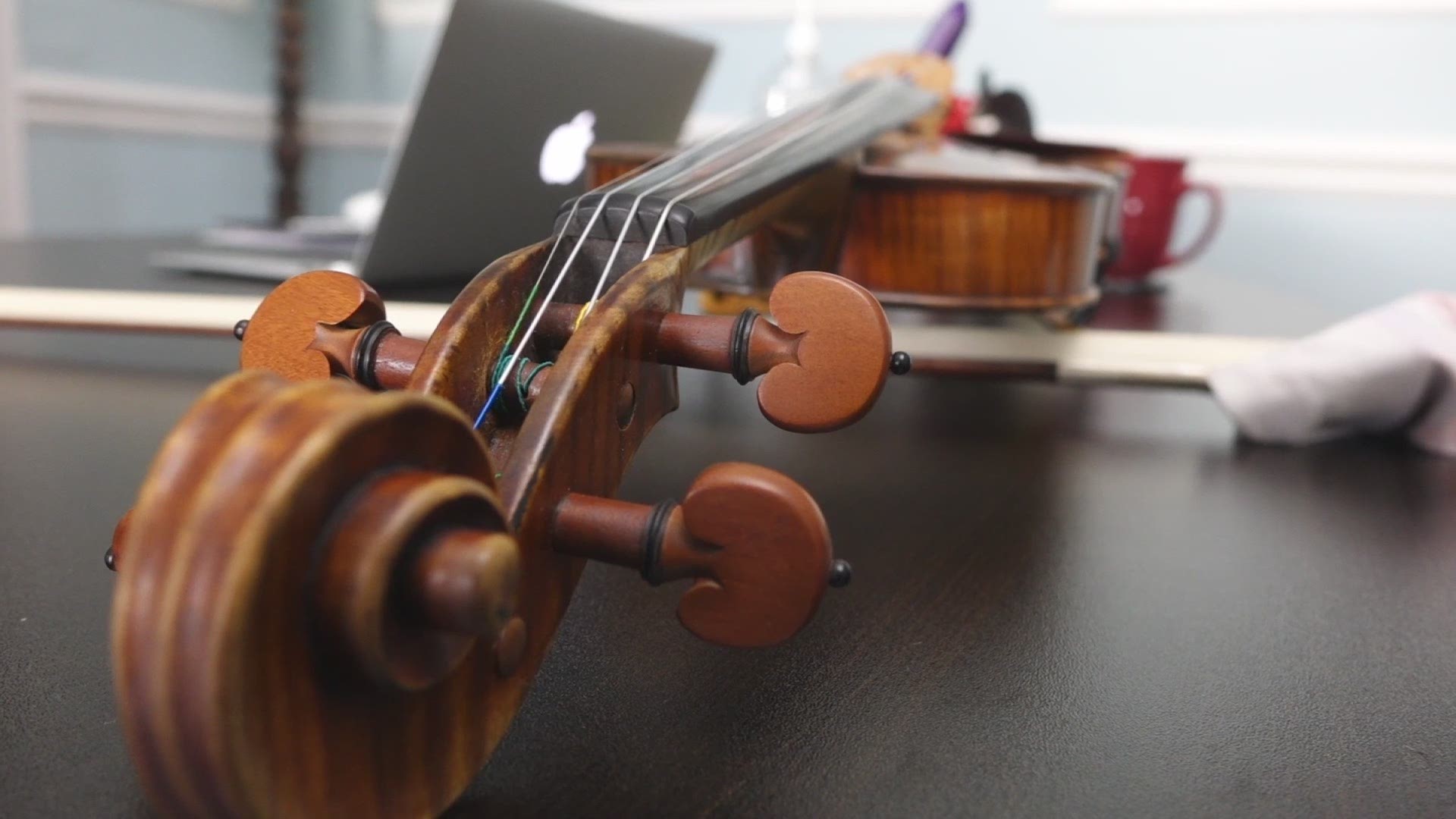MACON, Ga. — Once a restaurant (and also rumored to be haunted), the Bell House in Macon has a deep history dating back to the 1800s. It was featured on an Allman Brothers album cover, and now operates as the Robert McDuffie Center for Strings.
So, where does its rich history begin?
Nathan Beall, the son of former Macon Mayor Robert Beall, built the home in the mid-1800s. In 1865, the house was sold to Leonidas Jordan, who then sold it to his wife's father, Captain Samuel Dunlap.
Dunlap remodeled the house in the early 1900s, adding the 18 large white Greek columns before he died. During World War II it was used as a boarding house and tea room.
For a time in the 1970s and 80s, the building was called Beall's 1860 Restaurant.
"So many Maconites did their prom night dinners, special occasion dinners here," said Amy Schwartz Moretti, the director of the McDuffie Center.
It's rumored to be haunted. Moretti says servers at the restaurant reported falling objects and weird occurrences.
"People debate whether it was ghosts, or just the structural nature of the old building," she said.
Whether or not it's actually haunted, Moretti says, "it really is a warm space." The home is listed on the National Register of Historic Places.
Gus Beall was the last owner of the building before he renovated and donated the building to Mercer University -- in his wife's name -- in 2008. Robert McDuffie had his "eye on the building," according to Moretti.
"I think it is the beauty of the architecture on the outside," she said. "It's an incredibly gorgeous building, right near downtown. Convenient to Mercer, convenient to everything really."
In 2012, the building was transformed into a space where music could come to life with the help of a $1.5 million grant. Soundproofing measures were taken to make the space usable for musicians, but a lot of the historical features were kept.
In 2014, the Robert McDuffie Center for Strings was ready to be used by staff and students. Today it still serves as a space for creativity and music. Moretti says she's happy that this historical building was refurbished and is being used.
"I think it's so incredibly important," she said. "We're so fortunate to have these buildings here in Macon."
Are you curious about the hidden history of a building in your community? Send us a Facebook message or an email to news@13wmaz.com.
MORE HIDDEN HISTORY

